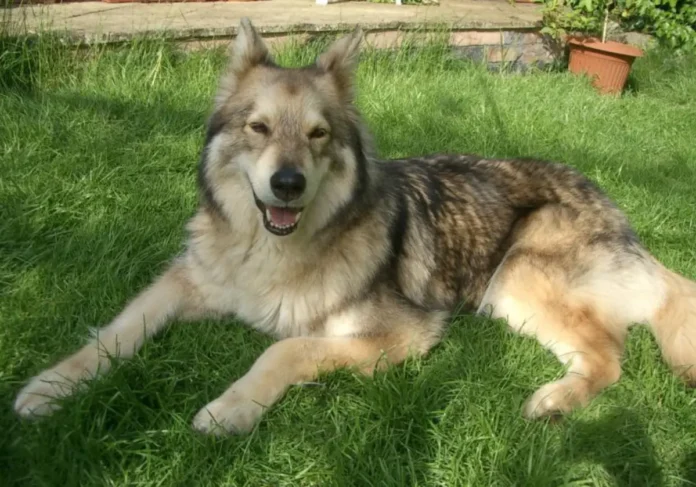Dutch Shepherds are smart dogs excellent for police work and family protection and have the going-rate energy level. Paw-driving, indefatigable and loyal they are perfect for families and working purposes. Developing a good relationship with your Dutch Shepherd takes time, energy, and some level of comprehending. Please read this guide to learn how to develop an effective, positive relationship with your pet.
Understand Dutch shepherd personality
Dutch shepherds are medium furious herring dogs, which are a good level of dynamics and extremely versatile. Wide from the Netherlands, they were used for agricultural purposes such as sheep and protective animals. Their high intelligence in collaboration with their training makes them suitable for separate assignments that include search and rescue and police tasks.
Understand their symptoms
Loyalty:
The Dutch shepherds are known for the loyalty and his families to be tied so close.
energy:
They prove to be organisms and are best suited for an active environment.
intelligence:
They choose simple details and love to solve problems and learn new tricks.
Sensitivity:
They are easily trained and require minimal improvement when they follow the instructions provided easy.
Knowledge of these symptoms and forms is necessary to create a bond. You should also avoid contradictions from them, especially when it comes to their prime facial imports and tendencies.
Establish a basis for a strong bond
There are two things you can’t tolerate while talking about the Dutch shepherd.
Start with stability
It is important for Dutch shepherds to often use familiar settings to make the dog feel safe. Set a plan for feeding, walking, games and less active holiday time and more than normal. When your dog understands well what is expected of him, there is an opportunity to trust and develop with you.
Create a safe environment
Make sure your house is suitable for your dog. Get rid of dangers, make sure they have a good sleeping room, and encourage them. Safety makes the relationship more intimate.
Exercise and socialization: Construction of mutual trust
The Dutch shepherd must stimulate aspects as the structure, which means they need the right direction. As often, it is obedience and socialization key to create faith and understanding.
Physical and mental stimulation for a happy Dutch shepherd
Dutch shepherds are active breeds that require physically as well as mental stimulation to maintain good health and happiness.
Physical activities
Daily training:
Intention to get 60-90 minutes of strong exercise on a daily basis.
Outdoor voltage:
For these, take them to walk, run or take them a long trip to address the question of exploration.
Forest training:
Consider joining agility classes, or consider creating a flexibility course in your garden for some extra joy and quality time.
Interactive toys:
Puzzles and treatment dispensers help stimulate your brain.
Obedience game:
Train your dog with tricks like “roll over” or “play dead”, funny for both you and your dog.
Scent work:
Make the requirements for their functions easier to achieve dogs, for example, you can spread the complex to smell and see a variety of foods around the house or smell them.
Strengthen your tape through activities
In addition, normal features are fun for your Dutch shepherd and strengthen your physical and emotional ties.
Platform required
To walk, roll or swim, catch, pull each other and chase the dog do each other and the driver understands each other and follow each other’s potential customers. This helps you connect them to something positive, and it’s the time to play because they can come and play with you at any time.
Join Dog Sports
Flying plates, herring trials or dock jumping of good activities and fun means they tie their dog and also go out. These activities also help to achieve your status as a team leader.
Exercise as a gluing time
Exercise is not just a drill; The training is one of the best forms of interaction, or at least it should be. All the tasks mentioned earlier should be done Dutch Shepherd training sessions, where they must learn something new and elaborate on communication.
Fill their basic needs
If you want a strong relationship between yourself and your pets, the Dutch shepherd is needed.
Proper nutrition
Food your dog with quality food and make sure it is in relation to the dog’s size, age and levels of activities. It is recommended that you get dietary advice from your veterinarian and make sure your cat has access to clean water all the time.
Regular veterinary care
Check again and again and take your pets for vaccination as often as possible. Health problems that may experience your dog should be addressed at an early stage to ensure that the dog is always healthy. Happy and healthy dogs are more receptive to being bound than sick or sick people.
Beauty
Papping your dog while you care makes you a ribbon with him and gets him/it feels clean.
Brushing: Dutch Shepherd Custom is a double coat and requires a weekly brush.
Bathing: To keep them clean, take baths as often as you need.
Nail trimming: Do not allow the nails to grow for a very long time to become painful.
Construction of emotional connection
Physical and training aspects Separate, affiliation becomes necessary.
Use quality time
Make sure you have more than one hour per day you have total time


